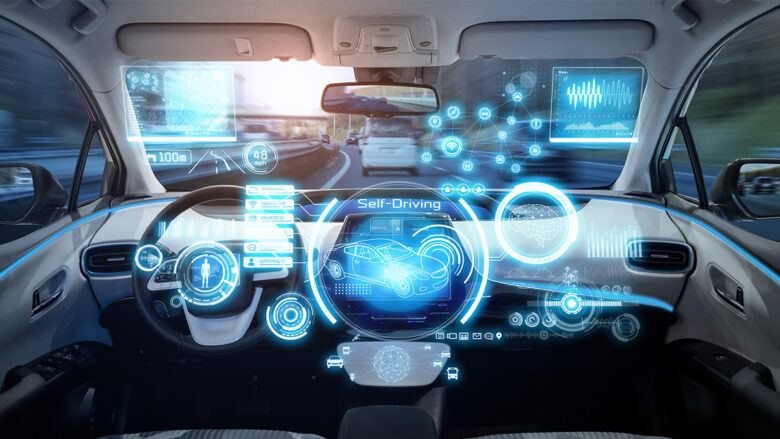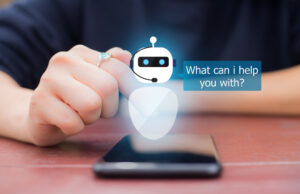Artificial intelligence (AI) significantly transforms our travel habits and the construction of cars. Integrating AI into smart cars is no longer just a pipe dream; it’s already changing the way we travel today. AI plays a crucial role in improving road safety, from streamlining navigation to preventing accidents. Understanding how AI works in cars and its importance provides a clearer picture of the future of transportation and how safety will evolve.
How AI Improves Vehicle Perception
One of the greatest benefits of AI in smart cars is its ability to help them better perceive their surroundings. AI uses real-time data from sensors, cameras, and radar systems to detect objects, people, other vehicles, and road conditions. This perception allows cars to make decisions faster than humans, reducing the risk of collisions. AI is an effective tool for improving road safety because it doesn’t wear out, lose focus, or cause damage.
AI and Driver Assistance Systems
Advanced driver assistance systems, often powered by AI, equip many vehicles on the road today. These technologies can help drivers stay in their lane, maintain a safe distance from other vehicles, and even apply emergency braking if a collision is imminent. Artificial intelligence (AI) can analyze road data in real time, enabling features such as lane departure warnings, adaptive cruise control, and collision avoidance. These features provide drivers with an extra pair of eyes and reflexes, helping them avoid mistakes that could lead to accidents.
AI in Self-Driving Cars
Self-driving cars are perhaps the most visible and discussed application of AI in the automotive sector. They use artificial intelligence (AI) to read road signs, monitor traffic conditions, and make difficult decisions about speed, direction, and safety. They utilize machine learning, computer vision, and big data to drive autonomously. While fully autonomous vehicles are still in the testing and production phase, developments so far suggest that AI has the opportunity to transform our understanding of driving and make it safer by reducing accidents caused by human error.
AI and Predictive Maintenance
Artificial intelligence isn’t just about driving; it can also make cars smarter when it comes to maintenance. Predictive maintenance systems use AI to monitor the health of car components, such as engines, brakes, and tires. By analyzing sensor data, AI can detect subtle problems before they develop into serious issues. This keeps cars in excellent working order, prevents them from breaking down on the road, and improves driving safety. Predictive maintenance can also help drivers keep their cars running smoothly, avoid costly repairs, and save money.
AI and Traffic Management
Smart cars with AI can potentially assist in traffic management. By connecting to the larger network of cars and traffic systems, AI can improve traffic flow and reduce congestion. Connected cars can warn each other about accidents, obstacles, or traffic jams. This allows drivers to choose safer and faster routes. This not only saves time but also reduces the stress of driving in unpredictable traffic conditions.
How AI Helps Prevent Accidents
One of the greatest benefits of AI in smart cars is its ability to help people avoid injuries. Human error causes most car accidents, but AI quickly assesses and takes action to reduce these risks. AI can reduce the risk of accidents by using technologies such as automatic emergency braking, pedestrian recognition, and driver monitoring systems. AI protects the road by identifying potential issues and taking action before the driver does. This makes driving safer for everyone.
AI and Driver Monitoring Systems
Artificial Intelligence (AI) significantly contributes to monitoring drivers’ behavior. Some cars are equipped with technology that can detect driver fatigue or distraction by monitoring the eyes, head, and even heart rate. If AI detects that the driver is not fully alert, it can warn the driver or even control the car, preventing an accident. This technology keeps drivers alert and reduces the risk of drowsiness or distraction while driving.
AI in Parking Assistance
Driving can be stressful, but artificial intelligence (AI) makes parking easier and safer. Many new cars are equipped with automated parking systems that use AI to estimate parking spaces and park automatically without human intervention. Some cars have the capability to park themselves simply by pressing a button. This reduces the risk of parking accidents, saves time, and makes parking easier, especially in congested urban areas.
The Future of Smart Cars and AI
The future of AI in the automotive industry looks bright. As technology advances, cars will become autonomous, connected, and safer. They will be able to communicate with each other, traffic lights, road infrastructure, and smart cities. AI will play a crucial role in creating a driving environment where driving is no longer just about human behavior but about intelligent systems working together to keep everyone safe. The dream of accident-free roads may not be as far-fetched as it once was.
Conclusion
AI is significantly changing the way we drive, making smart cars safer, smarter, and more efficient. AI has already transformed every aspect of automotive technology, from advanced driver assistance systems (ADAS) and self-driving cars to predictive maintenance and driver monitoring. Artificial intelligence is crucial to the future of transportation, helping to prevent accidents, manage traffic, and potentially reduce insurance costs. While challenges remain, developments so far suggest that AI can help everyone drive safely and reliably.
FAQs
1. What is the main role of AI in smart cars?
AI uses data from sensors and cameras to help cars make smarter decisions, making them safer and more efficient.
2. Do all new cars use AI?
Not all cars have powerful AI, but many do have AI features such as lane-keeping, adaptive cruise control, and emergency braking.
3. Can AI potentially prevent all accidents?
AI can detect threats faster than humans, significantly reducing risk, but it cannot yet completely prevent accidents.
4. Do people only use AI in self-driving cars?
No, AI is also used in traditional cars, for example, to assist with parking, monitor drivers, and predict when maintenance is needed.
5. What can AI do for driving in the future?
In the future, there will be more self-driving cars, connected transportation systems, and smarter cities, all working together to make transportation safer and more efficient.




